NSF Mid-Scale Research Infrastructure
Workshop for Intelligent Water Systems
speakers
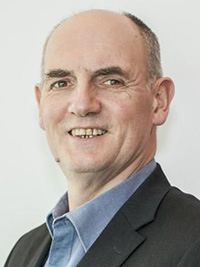
Robert Argent
General Manager
Bureau of Meteorology, Australia
Rob leads the Bureau of Meteorology’s Research to Operations Program. The Program transforms leading-edge science into reliable and trusted operational services that deliver impact and value to Bureau customers. He previously led the Bureau’s Water Program, delivering a suite of national water data and information services that include past, present and future assessments of surface and groundwater resources. Prior work includes research and IT leadership within the Bureau and fifteen years with The University of Melbourne on hydrological analysis and catchment modeling.

Pablo Calabuig
CEO
GoAigua Inc.
Pablo Calabuig is CEO of GoAigua Inc, the US subsidiary of the Spain-based smart water company that is transforming utilities into smarter, more proactive and more resilient entities through digital transformation. He graduated in Civil and Environmental Engineering at University of Valencia and UC Berkeley. After working in Valencia City’s Water System he joined the global consulting Firm McKinsey & Company, where he did a lot of work in Digital Transformation, IoT, and telecommunications across the US and Latin America. In 2019 he rejoined his Family Business to lead its digital expansion in North America.
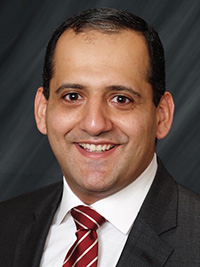
Amro Farid
Associate Professor
Dartmouth College
Professor Amro M. Farid is currently an Associate Professor of Engineering at the Thayer School of Engineering at Dartmouth and Adjunct Associate Professor of Computer Science at the Department of Computer Science. He leads the Laboratory for Intelligent Integrated Networks of Engineering Systems (LIINES). The laboratory maintains an active research program in
- Smart Power Grids
- Energy-Water Nexus
- Electrified Transportation
- Industrial Energy Management
- Interdependent Smart City Infrastructures
He received his Sc. B. in 2000 and his Sc. M. 2002 from the MIT Mechanical Engineering Department. He went onto complete his Ph.D. degree at the Institute for Manufacturing within the University of Cambridge (UK) Engineering Department in 2007. He has varied industrial experiences from the automotive, semiconductor, defense, chemical, and manufacturing sectors. In 2010, he began his academic career as a visiting scholar at the MIT Technology Development Program. He is also a Research Affiliate at the MIT Mechanical Engineering Department and the U. of Massachusetts Transportation Research Center.
He has made active contributions to the MIT-Masdar Institute Collaborative Initiative, the MIT Future of the Electricity Grid Study, and the IEEE Vision for Smart Grid Controls. He currently serves as Chair of the Council of Engineering Systems Universities (CESUN), Chair of IEEE Smart Cities Technical Activities Committee, and Co-Chair of the IEEE Systems, Man & Cybernetics (SMC) Technical Committee on Intelligent Industrial Systems. He is a senior member of the IEEE and a member of the ASME and INCOSE.
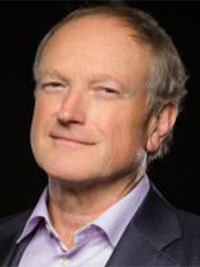
Mike Gardner
CEO
Aqaix
Michael has had a long career as an entrepreneur and engineering leader at a variety of Silicon Valley companies, including eBay, where he ran Search technology, and Apigee, where he built the cloud API system that is now at the heart of Google’s cloud platform. He also started and ran a Palo Alto research center for a very large bank, BNY Mellon, where he built a group of more than 80 cloud engineers and data scientists building disruptive “Fintech” software for Wall Street. He has had a first hand role helping drive Digitization and Innovation in industries as diverse as Telecomm, Retail, Apparel, and Food. In 2017 he founded Aqaix, which offers a cloud platform with software to digitize the business processes for water infrastructure finance. The Aqaix cloud offers a Finance marketplace, a data integration hub for API-based integration of water data of all types, and a new blockchain-based ledgering system.
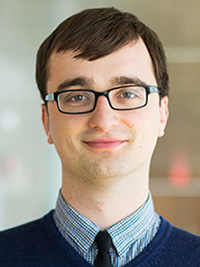
Branko Kerkez
Associate Professor
University of Michigan
Branko Kerkez is an associate professor of Civil and Environmental Engineering at the University of Michigan. His research interests include water, data, and sensors. His group is working to enable smart water systems, which autonomously adapt themselves to changing conditions using real-time data and controls. His research projects have spanned wireless sensing of large mountain basis, real-time flood forecasting, aquatic robotics, and the development of real-time control algorithms for water systems. He is the founder of Open-Storm.org, an open source consortium dedicated to freely sharing hardware, software, and case studies on smart water systems. He received his M.S. and Ph.D. in Civil and Environmental Engineering, and an M.S. in Electrical Engineering and Computer Science, all from UC Berkeley. He is a recipient of the National Science Foundation’s CAREER award and was recognized by National Academy of Engineering as a Gilbreth Lecturer in 2018.
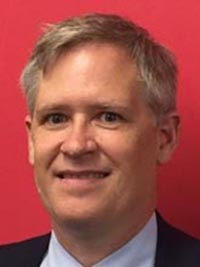
Paul Lane
Program Director
National Science Foundation
Dr. Paul A. Lane is a Program Director for Electronics, Photonics and Magnetic Devices in the Division of Electrical, Communications and Cyber Systems (ECCS), managing the interdisciplinary science and engineering research thrust areas for electronic devices. His focus areas include applications of low-dimensional, organic and hybrid semiconductors and novel energy sources, including solar, thermal, and mechanical.
Dr. Lane spent over 25 years studying the photophysics and device applications of novel semiconductors, particularly organic materials. Dr. Lane earned a B.A. in Mathematics and Physics from Macalester College in St. Paul, Minnesota, and a Ph.D. in Experimental Condensed Matter Physics from Iowa State University. Following post-doctoral research at the University of Utah, he joined the faculty of the Physics Department at the University of Sheffield in the United Kingdom. In 2003, he joined the U.S. Naval Research Laboratory Optical Sciences Division and moved to the National Science Foundation in 2018. Dr. Lane is a Fellow of the SPIE and a member of the AAAS and IEEE (Electronic Devices Society).
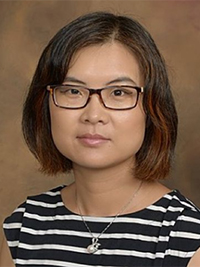
Ting Lu
Business Practice Leader – Digital Solutions
Clean Water Services
Dr. Ting Lu is the Business Practice Leader for Digital Solutions at Clean Water Services in Hillsboro, Oregon. Ting leads and directs innovation of digital solutions and oversees day to day IT implementations and the implementation of data management and IT and OT integration.
She is the Intelligent Water Focus Group Chair for the Water Research Foundation LIFT program and initiated the first international Intelligent Water Challenge to advance the adoption of smart systems into the water sector. Ting is also serving on the Utility Management Committee and the Integrated Planning Subcommittee at WEF.
Before joining Clean Water Services, Ting worked for the Metropolitan Sewer District of Greater Cincinnati and Black & Veatch, where she led the integrated planning effort and developed a quantitative and innovative water quality program with smart sensors and data analytics. Ting has authored over 100 papers and presentations nationally and internationally and coauthored several book chapters for the Water Environment Federation. She received her Ph.D. at the University of Cincinnati.
Kate Newhart
Associate Engineer
MWRD Denver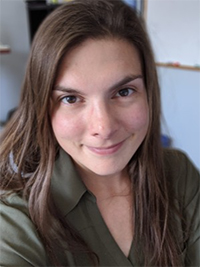
Kate Newhart just completed her Ph.D. dissertation at the Colorado School of Mines entitled, “Data-driven process monitoring and control of municipal wastewater treatment.” Currently, Kate is an Associate Engineer at Metro Wastewater Reclamation District, where her focus is on the full-scale investigation and demonstration of real-time, data-driven analysis methods using a mixture of statistical and machine learning to improve operations.
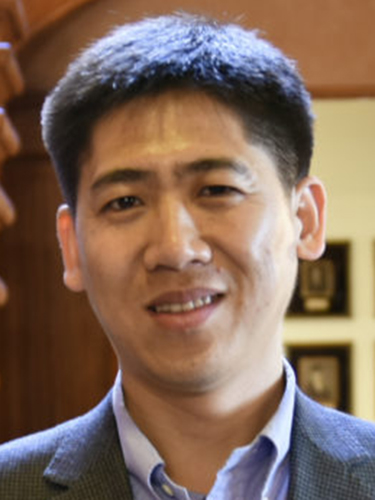
Z. Jason Ren
Acting Center Director and Associate Director for Research
Professor of Civil and Environmental Engineering and the Andlinger Center for Energy and the Environment
Z. Jason Ren (@zjasonren) is a professor of civil and environmental engineering and the Andlinger Center for Energy and the Environment at Princeton University. He currently serves as the center’s acting director and associate director for research. His research focuses on the water-energy nexus especially in the areas of energy and resource recovery during environmental processes such as wastewater treatment and reuse, water desalination, remediation, and decarbonization (https://ren.princeton.edu). He has received various awards and most recently received the 2020 ASCE Walter L. Huber Civil Engineering Research Prize. Ren received his Ph.D. in environmental engineering from Penn State University.
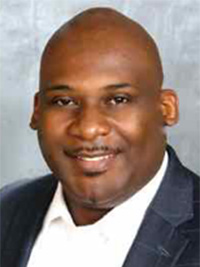
John Sudduth
CIO
MWRD Chicago
John H. Sudduth is the Director of Information Technology at the Metropolitan Water Reclamation District of Greater Chicago (MWRD). As Director, his responsibilities include oversight of the MWRD’s information technology as it relates to IT strategy, policy, support and operations.
John has more than 25 years of information technology experience and is skilled in defining organizational structure, resource requirements, and mission/vision alignment.
John earned a Bachelor of Science degree from Northwestern University and a Master of Science in information technology specializing in Information Systems Security from Northwestern University. He also currently holds several technical and professional certifications including: Certified Data Privacy Solutions Engineer (CDPSE), Certified Information Systems Security Professional (CISSP), and Certified in Risk and Information Security Control (CRISC).
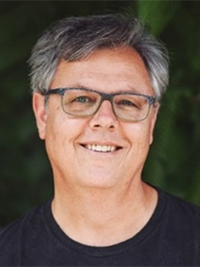
Rob Vertessy
Principal
Global Change Advisory
Rob has a Ph.D. from the Australian National University (1990) and is widely published in the field of hydrology. He led a distinguished career in water research, serving as Chief Executive of the Cooperative Research Centre for Catchment Hydrology (2002–2004) and then Chief of CSIRO’s Land and Water Division (2004–2007).
In late 2006, Rob was seconded to the Department of Prime Minister and Cabinet to design a national water information strategy as part of the Australian government’s National Plan for Water Security. He then joined the Bureau of Meteorology in 2007 to oversee its implementation as a new Bureau service, forming and then leading the Climate and Water Division (2007-2011). Rob served as CEO of the Bureau of Meteorology (2011-2016). After retiring from the Australian Public Service in April 2016, Rob took up a part-time role at the University of Melbourne as an Enterprise Professor in Water Resources, where he undertakes research on water security. Rob heads Global Change Advisory, a consulting company focused on environmental intelligence. In this capacity he has recently advised governments in India, Pakistan, Iran, Jordan, Laos and Cambodia on water reform and water information. He chairs the Murray Darling Basin Authority Advisory Committee on Social, Economic and Environmental Science. Recently he led the Australian Government’s Independent Assessment into the fish deaths in the lower Darling river. Rob is a Fellow of the Australian Academy of Technology and Engineering (ATSE) and chairs their Water Forum.
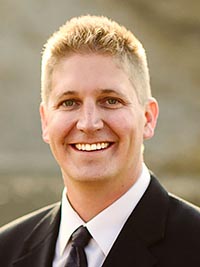
Jon Weers
Lead Technologist
Strategic Energy Analysis Center, NREL/NAWI
Jon Weers is a data scientist and researcher in the Strategic Energy Analysis Center (SEAC) at NREL, where he has developed numerous high-profile data management solutions for the U.S. Department of Energy (DOE), the White House, and the United Nations. He has over 20 years of experience developing data-driven, interactive web applications. Prior to joining NREL in 2010, Weers was the founder of a startup company that integrated public data APIs with custom algorithms and lead developer at The Library Corp, where he architected an integrated management platform for the Chicago and Denver public library systems.

Junjie Zhu
Research Associate
Princeton University
Dr. Junjie Zhu is a research associate in the Department of Civil and Environmental Engineering and Andlinger Center for Energy and the Environment at Princeton University. His research focuses on developing and applying data science tools to advance environmental systems, primarily water and wastewater engineered systems. In addition to machine learning and deep learning algorithms, his work emphasizes on hyperparameter optimization methods. Another major research area of his work is to apply text mining techniques to decipher and extract high-quality information from complex environmental literatures.